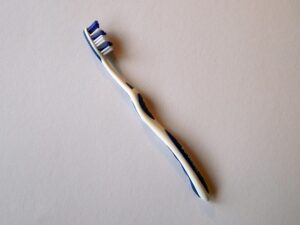9 months can seem like an eternity when waiting to find out who the father of a baby is. Many mothers find themselves asking, can you do a paternity test while pregnant? With the Non-invasive Prenatal Paternity (NiPP) test, that answer is a yes.
Non-invasive Prenatal Paternity (NiPP) testing allows the confirmation of paternity while a woman is still pregnant, with minimal risks to the fetus or mother. Utilizing genetic analysis of cell-free fetal DNA (cffDNA) which is present in the maternal bloodstream, NiPP tests offer a safe, accurate, and early means of establishing paternity.

What Is NiPP Testing?
NiPP testing involves analyzing cffDNA, which comprises small fragments of the fetus’s DNA circulating in the mother’s blood. By comparing these fragments with the DNA of the alleged father, labs can determine paternity with a high degree of accuracy. Unlike invasive methods such as amniocentesis or chorionic villus sampling (CVS), NiPP testing poses minimal risk of miscarriage or harm to the fetus.
How Does NIPP Testing Work?
Sample Collection
The process begins with a simple blood draw from the pregnant woman, typically performed after the seventh week of gestation when sufficient cffDNA is present. Also, a buccal (cheek) swab must be collected from the alleged father to obtain his DNA.
DNA Analysis
Advanced techniques such as Single Nucleotide Polymorphism (SNP) analysis and Next-Generation Sequencing (NGS) are employed to compare the cffDNA with the alleged father’s DNA. These methods allow for the detection of paternal genetic markers within the maternal bloodstream, facilitating accurate paternity determination.
Accuracy and Reliability
NiPP testing boasts a high degree of accuracy. Studies have demonstrated sensitivity and specificity rates exceeding 99% when sufficient fetal DNA is present. For instance, a study published in *Scientific Reports* highlighted the efficacy of using DIP-STR markers for early pregnancy paternity testing, achieving substantial improvements in accuracy and cost-effectiveness.
Legal Considerations
For NiPP test results to be admissible in legal proceedings, certain protocols must be followed:
Chain of Custody: Samples must be collected and handled under strict procedures to ensure their integrity.
Accredited Laboratories: Testing should be conducted in laboratories accredited by recognized bodies, such as the American Association of Blood Banks (AABB).
It’s important to consult legal professionals to understand the court admissibility of NiPP test results in certain jurisdictions.
Ethical and Emotional Considerations
While NiPP testing offers numerous benefits, it’s essential to consider the ethical and emotional implications:
Informed Consent: All parties involved should provide informed consent before testing.
Privacy and Confidentiality: Handling of genetic information must adhere to privacy laws and ethical standards.
Emotional Impact: The results of paternity testing can have significant emotional consequences for families. Counseling services may be beneficial to address potential challenges arising from test results.
Advantages of NiPP Testing
Safety: As a non-invasive procedure, NiPP testing drastically reduces the risk to baby and mother when compared to invasive methods.
Early Detection: Paternity can be determined as early as the seventh week of pregnancy.
High Accuracy: Advanced genetic analysis techniques ensure reliable results.
Convenience: The procedure involves simple sample collection methods, making it accessible and straightforward.
Limitations and Considerations
Cost: NiPP testing are more expensive than postnatal paternity tests, typically running between $1,400-$1,600. One reason for this is due to the added expense of the blood draw for specimen collection. Another reason is due to the more advanced lab analysis required to separate fetal and maternal DNA.
Availability: Access to accredited laboratories offering NiPP testing may be limited in certain regions. Luckily, collection sites can mail specimens to labs across the country, sometimes overnight.
Legal Recognition: Not all jurisdictions may accept NiPP test results in legal contexts.
Conclusion
NiPP testing is a significant advancement in genetic testing, providing a safe, accurate, and early method for determining paternity during pregnancy. By understanding the procedures, benefits, and considerations, people can make informed decisions that best suit their circumstances.
If you need a NiPP TEST in the Central Texas area, contact Morgan Diagnostics today to BOOK ONLINE
References
1. Damour, G., Baumer, K., Legardeur, H., et al. (2023). Early noninvasive prenatal paternity testing by targeted fetal DNA analysis. *Scientific Reports*, 13, 12139. https://www.nature.com/articles/s41598-023-39367-0
2. American Pregnancy Association. Non-Invasive Prenatal Paternity Test (NIPP). https://americanpregnancy.org/paternity-tests/non-invasive-prenatal-paternity-test/
3. MedlinePlus. What is noninvasive prenatal testing (NIPT) and what disorders can it screen for? https://medlineplus.gov/genetics/understanding/testing/nipt/
4. Gao, S., Li, B., Mao, L., et al. (2023). A theoretical base for non-invasive prenatal paternity testing. *Forensic Science International*, 346, 111649. https://www.sciencedirect.com/science/article/pii/S0379073823000993
5. Giannico, R., Forlani, L., Andrioletti, V., et al. (2023). NIPAT as Non-Invasive Prenatal Paternity Testing Using a Panel of 861 SNVs. *Genes*, 14(2), 312. https://www.mdpi.com/1422-0067/26/10/4518
6. Illinois Department of Public Health. Noninvasive Prenatal Testing Information for Pregnant People. https://dph.illinois.gov/topics-services/life-stages-populations/genomics/fact-sheets/nipt-pregnant-people.html
7. National Human Genome Research Institute. Noninvasive Prenatal Genetic Testing. https://www.genome.gov/dna-day/15-ways/noninvasive-prenatal-genetic-testing
8. Medical Research Archives. Application of Non-Invasive Prenatal Paternity Testing in Early Pregnancy of Sexual Assault Survivors. https://esmed.org/MRA/mra/article/view/6358
9. Ryan, A., Baner, J., Demko, Z., et al. (2013). Informatics-based, highly accurate, non-invasive prenatal paternity testing. *Genetics in Medicine*, 15(6), 473–477. https://www.gimjournal.org/article/S1098-3600(21)02773-8/fulltext
10. BMC Medical Genomics. Noninvasive prenatal paternity determination using microhaplotypes. https://bmcmedgenomics.biomedcentral.com/articles/10.1186/s12920-020-00806-w











